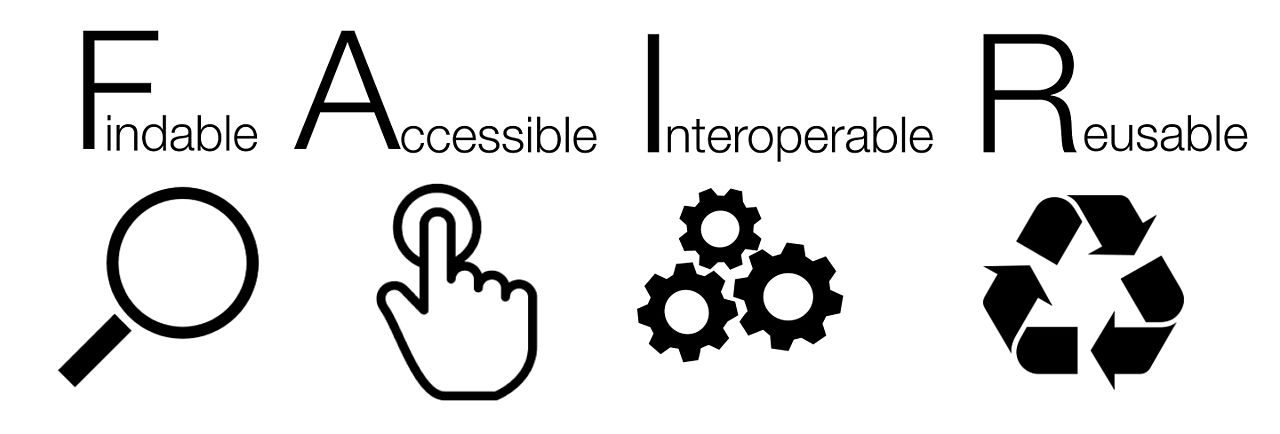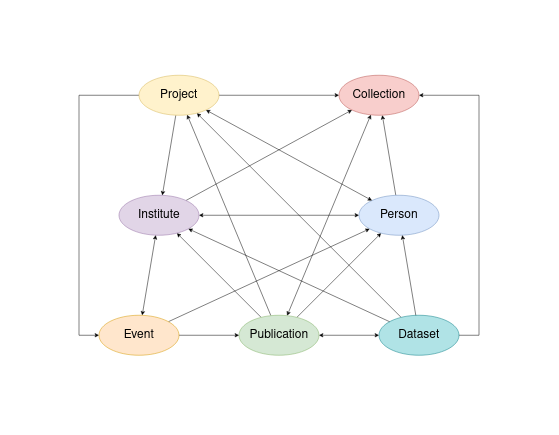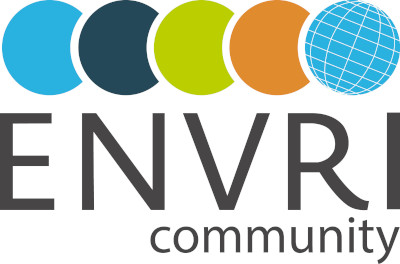Millions and millions of raw datasets are available on the World Wide Web. The new challenge emerging is Web-scale data discovery and linkage. The data is out there to solve questions today's scientists might have. We just need to find it.
Integrating and linking these data sets needs standardization, thus a little semantics goes a long way. Even if one might jokingly observe "that simply is a scientist's job", we need to realize that on a societal level, we are already short on data scientists - so it does pay off to make sure they become as efficient as possible.
Making metadata machine-readable, open, and understandable by anyone who finds it takes a lot of time and frustration out of the researcher's hands. When we bring structured metadata together we can answer complex questions quickly, easily, and accurately.
Here at the VLIZ Marine Data Centre (VMDC), we are applying linked-open-data principles and technologies as a basis for ensuring the FAIR values.
Integrated Marine Information System (IMIS)
IMIS is the system that provides catalogues on data, people, institutes, publications, and projects. The database aims to centralise all data regarding the names, education, professional background, affiliation, publications, projects and datasets of scientists. In this way, VLIZ creates a hub that can contribute to and facilitate scientific research. This database also contains professional e-mail addresses and phone numbers to improve the dataflow within the scientific community. VLIZ gathers the information via direct contact, from third-party sources or open sources. This data is stored indefinitely or until a request is made to VLIZ to remove a record.
Next to the public part of IMIS, this system is also used for internal VLIZ activities such as VLIZ memberships, subscriptions to paper publications, etc. This information is limited to address and membership type and is only accessible within the internal VLIZ network.
All IMIS visits and searches are registered and tracked for statistical and bug-fixing purposes, and for IMIS users (i.e. those with a login) their edits are additionally registered and tracked. Search data are stored to provide a better experience for the user and are rendered anonymous as soon as possible.
MarineInfo.org is a catalogue that offers a comprehensive range of interlinked data covering various topics relevant to the marine research domain. It is accessible for everyone, from researchers and policymakers to educators and students.
Data is available on following topics:
- datasets about marine & related research
- scientific publications about all kinds of marine & related research
- institutes and people active or involved in the marine research domain
- projects that are carried out within the marine research domain
- events that took place in context of the marine research domain
- collections grouping together other topics that have a similar context (such as a project, ...)

What does it mean?
Findable: This means that digital objects (*) can be found easily because they are placed in a publically-accessible catalogue and are described with accurate and plentiful metadata.
Accessible: This means that the data systems that provide access to the (meta)data (catalogues, archives, data portals, etc.) are machine interoperable using standard protocols.
Interoperable: This means that the digital objects are standardised – for example, that your data files have non-propriatory file formats, that the data therein are organised in a clear and machine-accessible way, and that standard vocabularies are used so the meaning of everything is clear.
Reusable: The digitial objects have a licence indicating the conditions under which they can be used, and they include provenance information so it is clear how the they were created.
(*) A digital object: a dataset, a data file, a publication, a piece of software, a data-visualising tool, and even metadata themselves are all "digital objects".
Open Science
The data centre promotes and uses Open Science principles and ensures that data and data systems are FAIR. It will also implement technologies that promote Open Science, such as LOD ('Linked Open Data'), and the semantic web. Open Science is no different from traditional science, it is just about carrying out your research in a more transparent and collaborative way.
The Integrated Marine Information System (IMIS) emerged in the year 2000 as a pioneering solution to streamline and centralise marine-related information management. Developed as an in-house catalogue, IMIS quickly established itself as the go-to platform for organising and accessing diverse marine data and resources.
At its core, IMIS served as a centralised reference point for internal processes within marine-focused organisations. It became an invaluable tool for researchers, practitioners, and professionals, providing a comprehensive knowledge repository and facilitating seamless collaboration.
Over the years, IMIS has evolved and adapted to the changing landscape of marine information management to incorporate Marineinfo.org. Marineinfo.org will embrace emerging technologies, improve data integration capabilities, and expand its user base to foster a thriving marine research community.
- Integrated Marine Information System (IMIS)
- born in 2000
- in-house catalogue
- central reference for internal processes
- Library, Compendium, Research outputs, KPIs...
- exports to partners: FRIS, RIs, ...

ENVRI-FAIR - The overarching goal of ENVRI-FAIR is to advance the findability, accessibility, interoperability, and reusability (FAIRness) of the data and services offered by the ENVRI Cluster research infrastructures and to connect them to the emerging European Open Science Cloud.